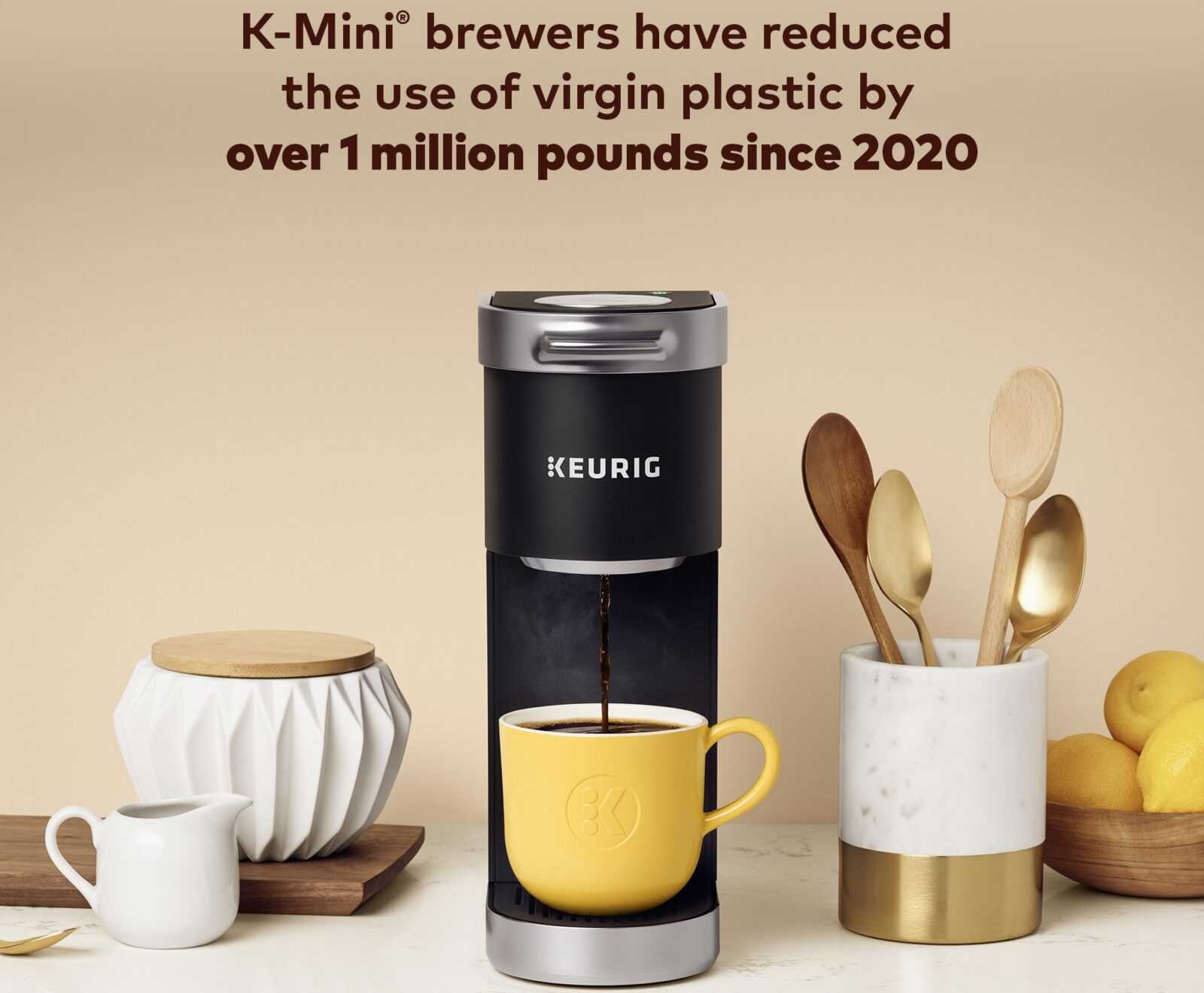BURLINGTON, Mass. and PLANO, Texas, US – In celebration of Earth Day 2021, Keurig Dr Pepper yesterday announced an important advancement in the Company’s sustainability journey – the elimination of one million pounds of virgin plastic used in its popular K-Mini series of coffee makers. The K-Mini® brewer in black is made with 25% post-consumer recycled (PCR) plastic and the K-Mini Plus® brewer in black is made with 50% PCR plastic, an increase of more than 15% since the brewer launched with PCR in 2020.
“The K-Mini, Keurig’s most environmentally minded coffee maker, represents a sustainable packaging approach that focuses on innovative design and increased use of recycled materials,” said Monique Oxender, Chief Sustainability Officer at Keurig Dr Pepper. “Buying and using PCR plastic in our brewers goes beyond our existing packaging commitments and keeps valuable material in use and out of the environment, taking us a meaningful step closer to circularity within our business.”
The Company is also using recycled content in its newly converted 16 oz. Snapple and all CORE® Hydration bottles, both of which are made of 100% recycled polyethylene terephthalate (rPET). As part of its Drink Well. Do Good. corporate responsibility platform, KDP has set 2025 sustainable packaging commitments for 100% of packaging to be recyclable or compostable and to use 30% PCR across its packaging portfolio.
Recovering packaging material for reuse is critical to sustainable packaging, and Keurig Dr Pepper is a co-founder and largest investor in The Recycling Partnership’s Polypropylene Recycling Coalition (“The Coalition”) and a co-founder in the Every Bottle Back (EBB) initiative along with industry peers and the American Beverage Association.
Since launching The Coalition in 2020, nearly $3 million in grant funding has been provided to seven materials recovery facilities across the U.S. to boost sortation of polypropylene and support targeted consumer education. These investments aim to improve curbside polypropylene recycling access for an additional 3% of all U.S. households, impacting a total of 7.2 million people nationally. In its first year, EBB committed $10 million in funds to 11 community projects throughout the U.S. These projects will collect an estimated 644 million new pounds of rPET plastic over 10 years that can be remade into new bottles.


















